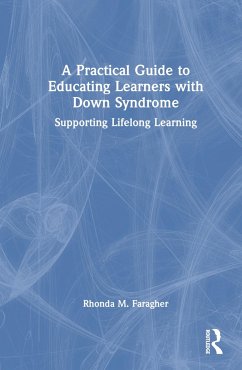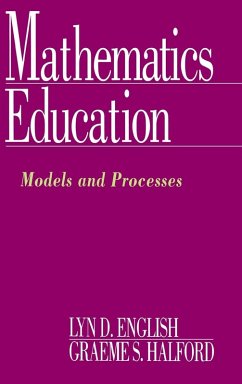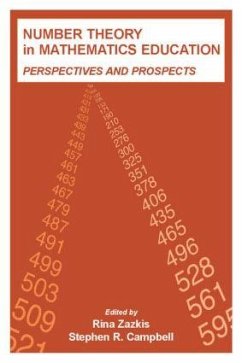
Mathematics Education
Exploring the Culture of Learning
Herausgeber: Allen, Barbara; Johnston-Wilder, Sue
Versandkostenfrei!
Versandfertig in 1-2 Wochen
141,99 €
inkl. MwSt.
Weitere Ausgaben:

PAYBACK Punkte
71 °P sammeln!
Mathematics Education identifies some of the most significant issues in mathematics education today. Pulling together relevant articles from authors well-known in their fields of study, the book addresses topical issues such as: * gender * equity * attitude * teacher belief and knowledge * community of practice * autonomy and agency * assessment * technology. The subject is dealt with in three parts: culture of the mathematics classroom, communication in mathematics classrooms and pupils' and teachers' perceptions. Students on postgraduate courses in mathematics education will find this book a...
Mathematics Education identifies some of the most significant issues in mathematics education today. Pulling together relevant articles from authors well-known in their fields of study, the book addresses topical issues such as: * gender * equity * attitude * teacher belief and knowledge * community of practice * autonomy and agency * assessment * technology. The subject is dealt with in three parts: culture of the mathematics classroom, communication in mathematics classrooms and pupils' and teachers' perceptions. Students on postgraduate courses in mathematics education will find this book a valuable resource. Students on BEd and PGCE courses will also find this a useful source of reference as will teachers of mathematics, mentors and advisers.













